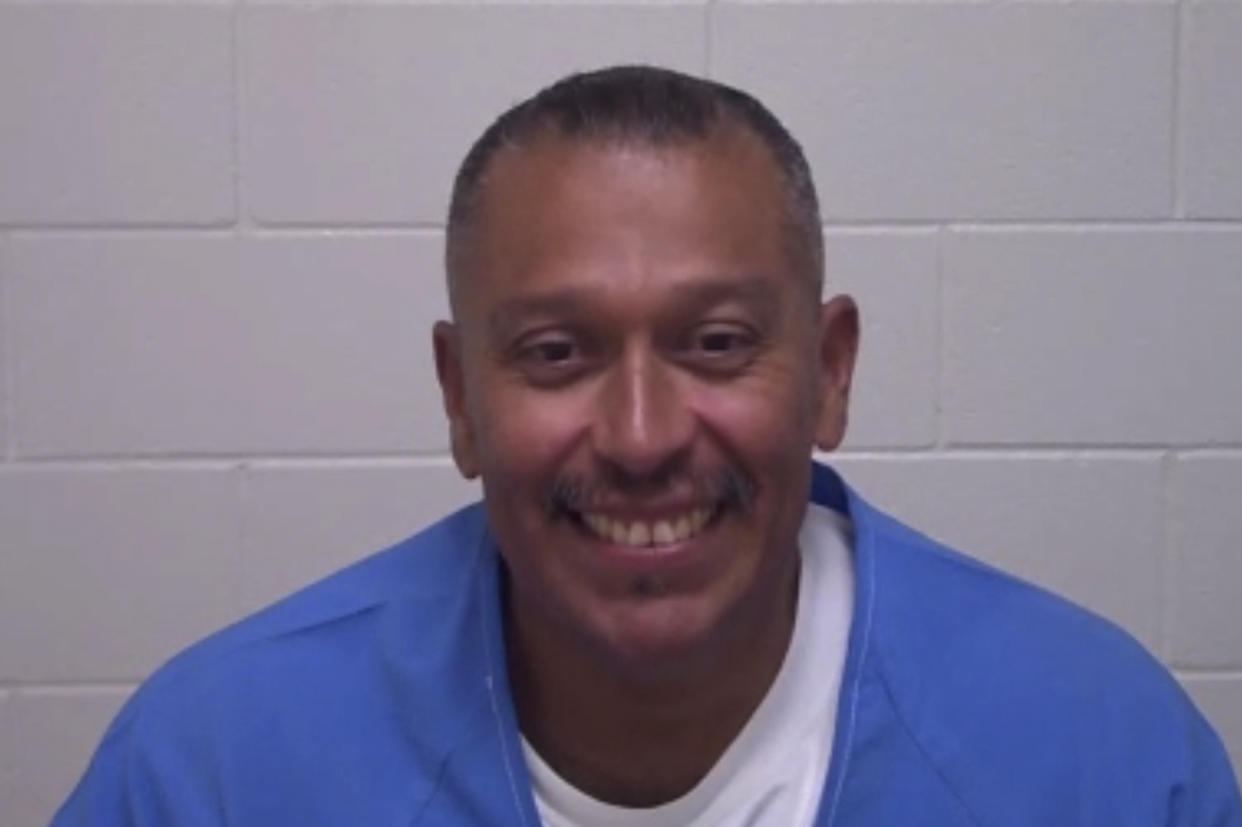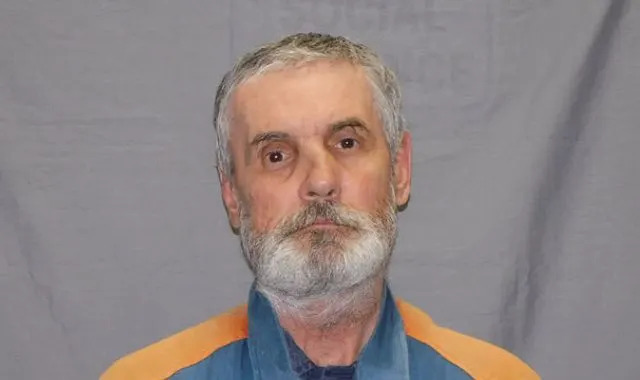Ian Jones, PA
Fri, 10 November 2023
The Beatles have made history by topping the UK singles chart a record 54 years since their previous number one.
Now And Then, a song based on a private recording made by John Lennon in the late 1970s and completed earlier this year by the surviving members of the group, has hit the top spot after just eight days on release.
It comes more than five decades since The Beatles last reached number one with The Ballad of John and Yoko in 1969.
No other act in UK music history has had such a long gap between two chart-toppers.
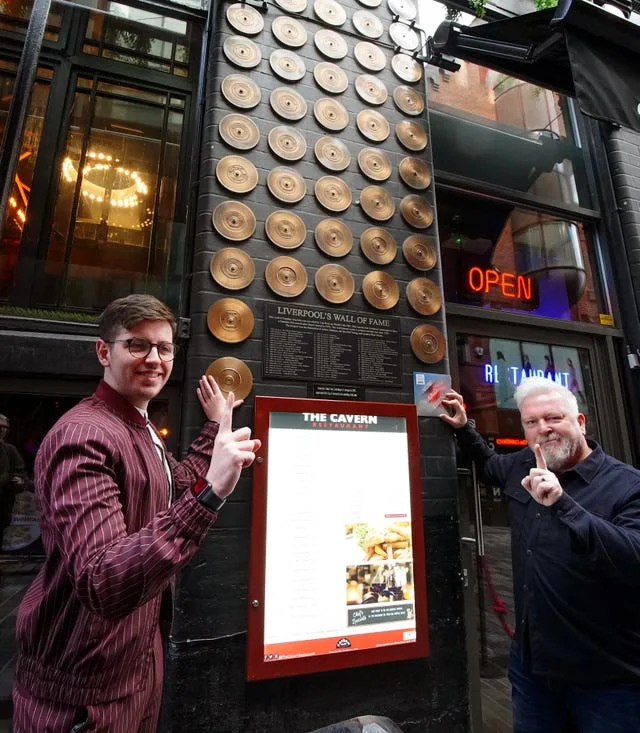
Liverpool’s cabinet member for culture, Cllr Harry Doyle (left) with Jon Keats, director of The Cavern, at Liverpool’s Pop Music Wall of Fame for the announcement that the new Beatles single, Now And Then, is to be immortalised on the wall (Peter Byrne/PA)
The previous record was set by Kate Bush, who waited 44 years between her first number one in 1978, Wuthering Heights, and her second in 2022, Running Up That Hill (A Deal with God).
Sir Paul McCartney, one of the two surviving Beatles, described the news as “mind-boggling”, telling the Official Charts Company: “It’s blown my socks off. It’s also a very emotional moment for me. I love it!”
Now And Then is The Beatles’ 18th number one hit, extending their lead as the group with the most chart-toppers in the UK, ahead of Westlife (14) and Take That (12).
They have also drawn level with Elvis Presley to share the record for the act with the greatest number of different songs to reach number one in the UK.
Presley has topped the UK singles chart 21 times, but on three of these occasions the songs were re-releases of former number ones.
The history of Now And Then spans nearly five decades, beginning with the home recording made by John Lennon on a cassette in the late 1970s, a few years before he was shot dead in 1980.
Lennon’s widow Yoko Ono passed this tape to Sir Paul in the early 1990s, who then worked on the recording with fellow Beatles George Harrison and Sir Ringo Starr.
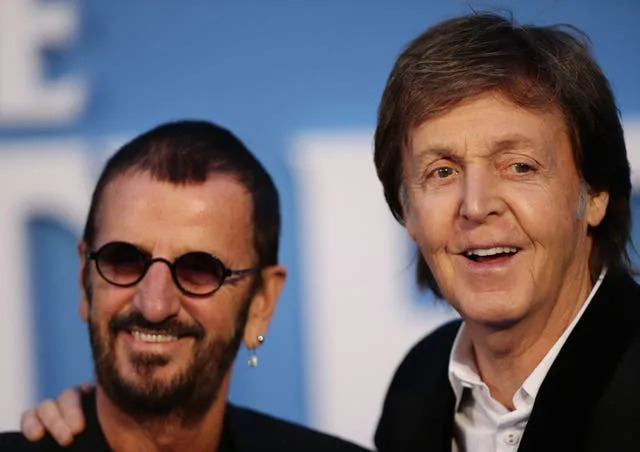
Surviving members of The Beatles Ringo Starr and Paul McCartney pictured in 2016 (Yui Mok/PA)
The trio quickly decided the poor sound quality of the tape, in particular the prominence of Lennon’s piano accompaniment, meant it was not worth developing any further.
It was not until 2022 that the right software was available to isolate Lennon’s voice from the original recording, which was then used as the basis for the current version of the song.
Along with Lennon’s 1970s vocal, some of the 1990s guitar work by George Harrison – who died in 2001 – has been kept on the track, along with new contributions from Sir Paul and Sir Ringo.
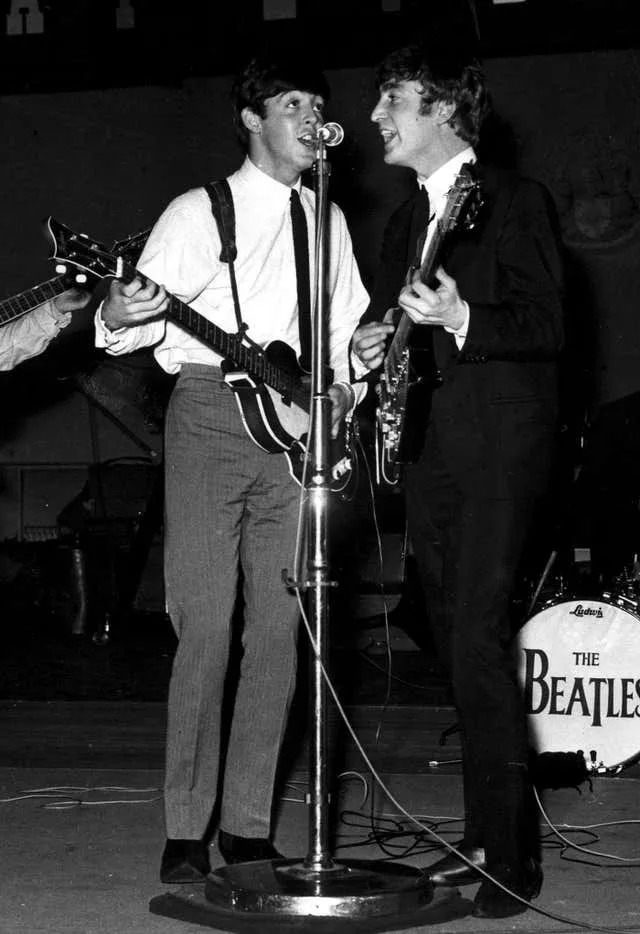
Paul McCartney and John Lennon performing in 1963, the year of The Beatles’ first number one single From Me To You (PA)
The song has been masterminded by Sir Paul together with Giles Martin, son of the Beatles’ original producer George Martin, while film directer Peter Jackson led the technological process to extract and clean up Lennon’s vocal.
The Beatles’ original run of number ones lasted just over six years, starting with From Me To You in April 1963 and ending with The Ballad of John and Yoko in June 1969.
Their 1960s chart-toppers included some of the world’s most well-known songs, such as She Loves You, Help!, Yellow Submarine, All You Need Is Love and Hey Jude.
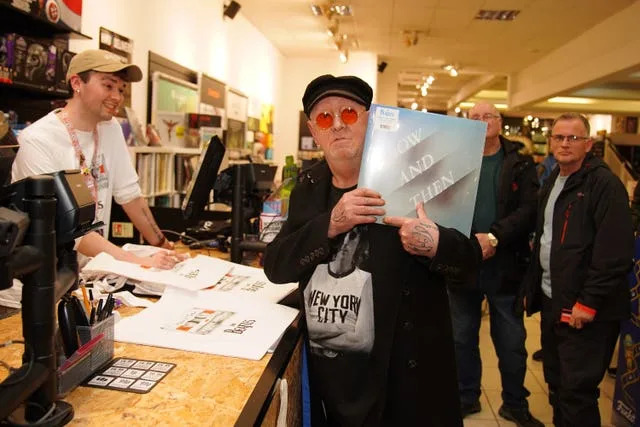
Beatles superfan John Lennon, who changed his name by deed poll from Alan Williams in 2022, holds the first copy of the newly released last Beatles song, Now And Then, at a special midnight launch event at HMV Liverpool (Peter Byrne/PA)
The group missed out on a chance to score two further number ones in the 1990s, when Free As A Bird and Real Love stalled at numbers two and four respectively.
Both of these songs, like Now And Then, were based on private recordings made by Lennon in the 1970s, except these were fully developed and completed in the mid-1990s by McCartney, Harrison and Starr.
Other artists with long spells between UK number one singles include Tom Jones (42 years from Green, Green Grass of Home in 1967 to Islands In The Stream – with Rob Brydon, Robin Gibb and Ruth Jones – in 2009); Wham! (35 years between The Edge Of Heaven in 1986 and Last Christmas in 2021); and Cher (26 years between I Got You Babe – with Sonny Bono – in 1965 and The Shoop Shoop Song in 1991).
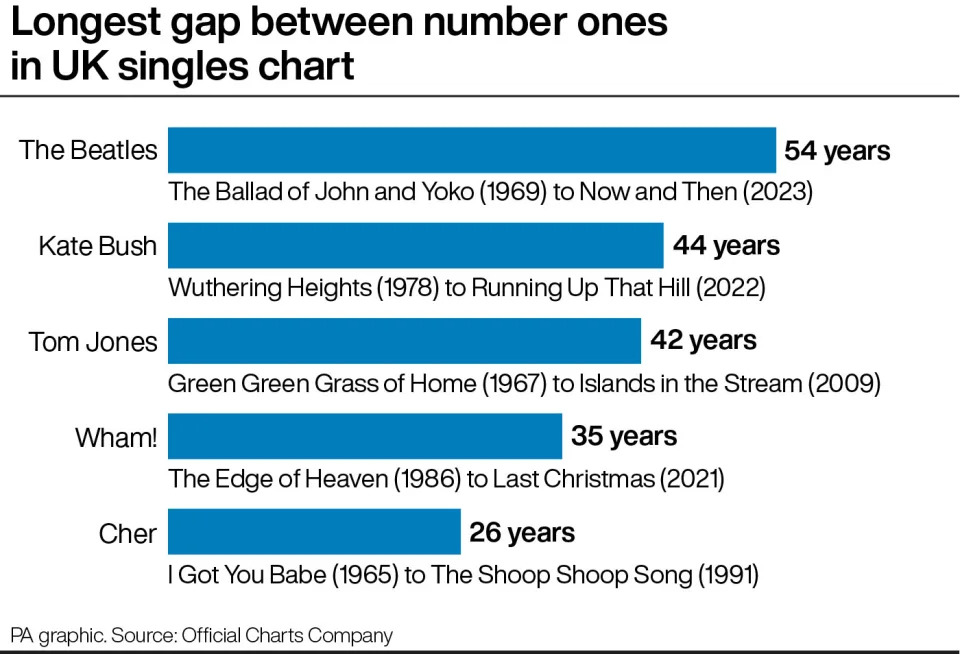
(PA Graphics)
Last Christmas is back in the UK singles chart this week, re-appearing at number 37, while Mariah Carey’s equally persistent seasonal hit, All I Want For Christmas Is You, re-enters the chart at number 40.
It is the earliest appearance ever in the UK singles chart for a Christmas song.
Elsewhere, last week’s number one, Is It Over Now? (Taylor’s Version) by Taylor Swift, drops to number three, while Prada by Casso, Raye & D-Block Europe climbs one place to number two.
Taylor Swift remains at the top of the album chart with 1989 (Taylor’s Version), while a reissued version of Oasis’s 1998 compilation album The Masterplan is at number two.
BTS star Jung Kook is a new entry at number three with his debut solo album Golden, ahead of Hackney Diamonds by The Rolling Stones at four and a new entry for Sir Cliff Richard at five, Cliff With Strings – My Kinda Life.
The UK singles and album charts are compiled by the Official Charts Company.

